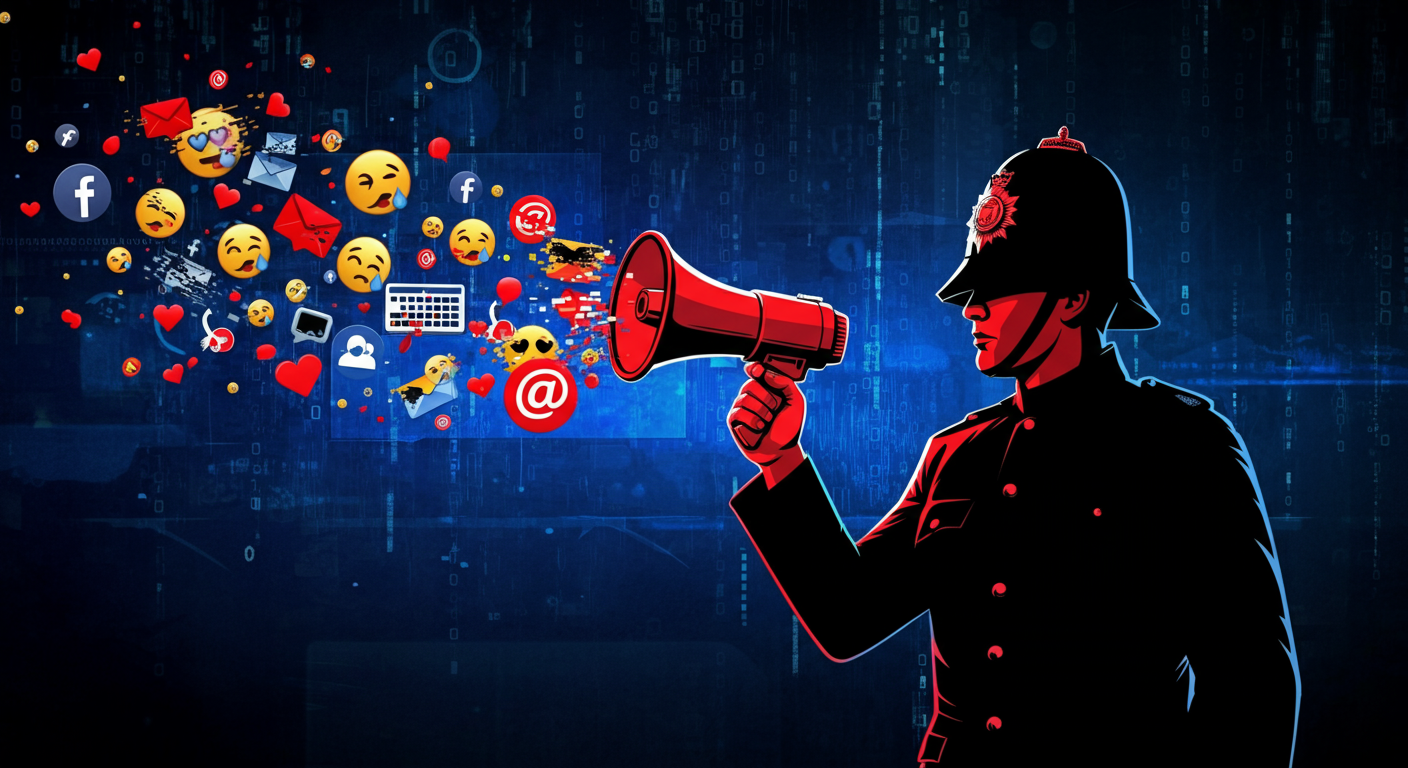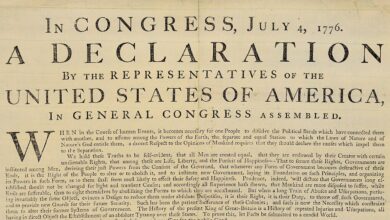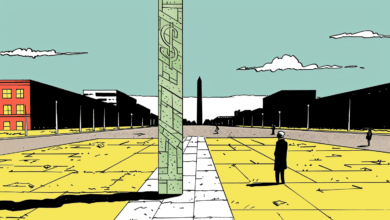When Speech Isn’t Free

Free speech is under threat in Britain. Individuals have been arrested and charged for social media posts. The concepts of “malicious communication” and “public order” (in legislation designed to address civil unrest) have been broadly interpreted by police—and the Communications Act allows for charges of posting “grossly offensive” material, a category that is very much in the eye of the beholder. The result has been prosecutions for commentary that, whether obnoxious or disgusting, should be permitted in a liberal society that believes in free expression.
But possibly more disturbing, and more insidious, than criminal charges for mouthing off on Facebook, is learning that the police are keeping records against citizens without them even knowing. This is happening under the concept of a “non-crime hate incident.” This category of report was created by the College of Policing in 2014.
From the police, the phrase non-crime hate incident itself sounds positively dystopian. If it’s not a crime, why are the cops involved? And who defines a “hate incident”? Frighteningly, you could be reported to the police, based on an entirely subjective interpretation of something you may or may not have said or done (the “hate incident”), and have this recorded against you.
The College of Policing’s 2014 guidance (which has since been revised) advised that even when no crime has been committed, any report “must be recorded regardless of whether or not [the complainant is] the victim, and irrespective of whether there is any evidence to identify the hate element.” Did you follow that? Anyone could report anything that may have happened to anyone, with no evidence, and it will be recorded against the alleged perpetrator. If you were the subject of the report, you would not even be notified, and could discover this years later when you had a background check for employment.
It goes against the common law principle of the right to confront your accuser, let alone the right to due process when confronted with the arms of the state. It will have already dawned on readers that such a system allows for a lot of mischief. One man received a record for whistling the theme music to the children’s cartoon Bob the Builder. Another member of the public reported that a dropped burger bun was a sign of racial hatred. The list of reports is simultaneously farcical and appalling in its reach. An investigation by the Telegraph newspaper revealed that over 120,000 such reports were filed between 2014 and 2019.
And given the lack of evidence or corroboration required, NCHI reporting has been tactically used as a form of harassment. I got in touch with one victim, barrister Sarah Phillimore, who found herself up against her local police force. The police were keeping records on her based on malicious complaints, yet she would not have known if the complainant had not told her. She answered my questions by email:
How did you first find out you had been reported for a “non-crime” incident?
About June 2020—the person who reported me boasted about it on social media saying I had a “record of my hate for life.” If he/she hadn’t done this, I would never have known, as the police did not tell me. After I read these boasts, I made a Data Subject Access Request of Wiltshire to see what they had recorded. I had three separate NCHIs recorded against me, all nonsensical.
How long did it take you to get a resolution against the police?
About 18 months. They refused to remove the recordings, despite them being so ridiculous, so I initiated proceedings in judicial review against Wiltshire Police and the College of Policing. One was a picture of my dog with the caption “my dog would call me a Nazi for cheese.” This was recorded under the heading “Hatred against transgender individuals.” After Harry Miller’s victory in the Court of Appeal in December 2021, they finally agreed to settle and remove the recordings. My application never actually went to court but it still cost about £50K, which I crowdfunded. You can find the full list of tweets for the first NCHI on the Fair Cop website, if you click on my case study.
What do you recommend other people do who might find themselves in this situation?
You will not be told there is a NCHI made against you. I always recommend that people make a Data Subject Access request of their local force to see what is recorded about them. If there is information recorded which is contrary to the Parliamentary Code of Practice around NCHI, then I advise making a formal complaint. If the police won’t remove it however, your only option is judicial review, which could be very expensive. I got a cost capping order in my application, which limited my liability on costs if I had lost, but you still have to find money to pay lawyers. I don’t think JR is something that could easily be done by a non-specialist lawyer.
The Fair Cop organization which worked with Sarah Phillimore was created by former police officer Harry Miller, to challenge these cases and address police overreach. Miller himself brought and won a case against the College of Policing after he was reported for posting a limerick online. Fair Cop has brought cases against multiple police forces for their treatment of speech and liberties, and is one of a number of groups fighting back. The Free Speech Union also supplies legal support for its members fighting for their rights to free expression. But it shouldn’t require multiple court victories for the government to see this system as destructive to those affected, and corrosive of public views of the police.
New guidance was issued in 2023, raising the threshold for such reports to situations where there was a “real risk” of significant harm or future criminal offense. But those are subjective assessments, and police forces still seem to be committed to recording NCHIs. In the twelve months to May 2025, one force, North Yorkshire, recorded 216.
Politicians from both Labour and the Conservative party have come out and said they want to end the NCHI reports, but nothing has been done yet. Police forces need to stop focusing on thought crimes and deal with actual crime.
The post When Speech Isn’t Free was first published by the Foundation for Economic Education, and is republished here with permission. Please support their efforts.



